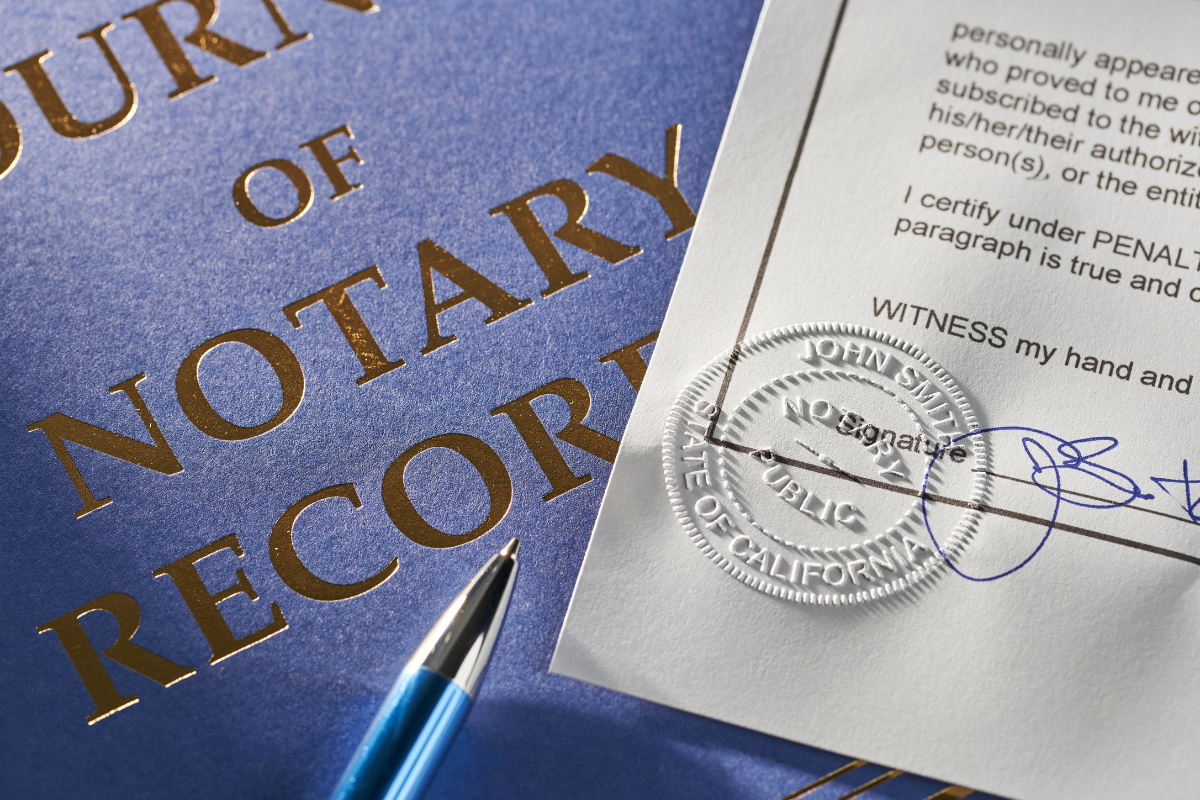Post Disclaimer: This blog reflects the author's personal experience with end-of-life matters and is provided in good faith for informational purposes only. While we aim to provide clear guidance on hard-to-find topics, this content is not legal advice and your use is at your own risk. Estate planning and end-of-life laws vary by location, so please consult your state's laws and seek guidance from a licensed attorney for your specific situation. We make no warranty about the accuracy or completeness of this information, which does not replace professional legal counsel. For more information, please see our full disclaimer.
A small estate affidavit is a legal tool that lets heirs claim assets from the estate of someone who has passed away, especially when no will exists.
This process not only saves time and money but also reduces emotional strain, helping families focus on healing during a difficult time.
By understanding how this affidavit works, you can make informed decisions that honor your loved one's memory while managing their affairs with compassion and clarity.

Understanding Small Estate Affidavits
When dealing with the aftermath of a loved one's passing, navigating their estate can feel overwhelming.
Small estate affidavits act as a helpful tool in these circumstances, offering a more straightforward approach to estate management when compared to traditional probate processes.
Let's explore their definition, purpose, and benefits.
Definition and Purpose
A small estate affidavit is a legal document designed to streamline the transfer of a deceased person's assets to their heirs without needing to undergo the full probate process.
Think of it as a bridge built specifically for less complex estates that do not require extensive legal oversight.
This process usually only applies when the estate falls below a certain financial threshold, varying depending on the jurisdiction.
The primary function of a small estate affidavit is to enable family members or heirs to quickly and efficiently take over assets like bank accounts, personal property, or even stocks.
By serving as a sworn written statement, it allows the rightful inheritor to claim the estate with minimal legal hoopla, which can be particularly comforting during emotionally taxing times.
For further information, the California Courts Self-Help page provides useful resources on how these affidavits work.
Benefits of Using a Small Estate Affidavit
Opting to utilize a small estate affidavit comes with several key advantages over the traditional probate process:
- Speed: Since it bypasses the lengthy court probate procedure, the transfer of assets is often much faster, allowing families to settle affairs without prolonged delays.
- Cost-Effectiveness: Legal expenses for probate can be significant. A small estate affidavit eliminates many of these costs by reducing or even avoiding attorney and court fees entirely.
- Emotional Relief: With fewer bureaucratic hurdles to jump through, families can focus more on healing and less on the intricacies of legal proceedings.
- Simplicity: The paperwork and steps involved are typically less daunting than those required for full probate, making it accessible even to those without legal expertise.
- Privacy: Probate proceedings are public, but using a small estate affidavit helps maintain family privacy as it often keeps asset details out of the public eye.
For anyone looking to understand how this can apply to their specific state, resources like Trust and Will's guide offer in-depth explanations tailored to your local requirements.
By providing a structure that simplifies what can be a convoluted process, small estate affidavits serve as a vital resource at a time when simplicity and compassion are paramount.

Eligibility Criteria for Small Estate Affidavits
Navigating the legal pathway of a loved one's estate can be like walking through a maze.
To aid in this journey, understanding the eligibility criteria for small estate affidavits is crucial.
This process varies by state, but common threads can guide you through this challenging terrain.
State-Specific Requirements
The rules governing small estate affidavits often shift depending on where you are.
Each state sets its own framework regarding who can file an affidavit, how it's filed, and what dollar value constitutes a "small" estate.
Many states require that no will exists in order for the small estate affidavit process to be viable, though requirements can differ substantially.
For exact details, it's wise to consult reliable sources such as Trust and Will's comprehensive guide.
Asset Limits and Types
Typically, asset limits set the stage for determining if a small estate affidavit can be used.
States often cap estate value requirements anywhere from $20,000 to $200,000.
This valuation usually encompasses all non-exempt assets, which might include things like cars, bank account balances, or small personal properties.
Certain larger assets, such as real estate, are often excluded from small estate affidavit eligibility.
Understanding these limits can prevent unnecessary legal complexities.
For example, the criteria outlined in BlueNotary's small affidavit estate resource clarify these specificities across jurisdictions.
By familiarizing yourself with both state-specific requirements and typical asset limits of small estate affidavits, you can better strategize your approach to managing your loved one’s estate.

The Process of Filing a Small Estate Affidavit
Filing a small estate affidavit is a practical approach to simplify the estate settlement process after a loved one's passing.
While managing grief, understanding the steps involved helps ensure assets are distributed fairly and legally.
Gathering Necessary Documentation
Before proceeding with a small estate affidavit, it's crucial to collect all required documentation.
This upfront preparation can make the entire process smoother:
- Death Certificate: This official document confirms the passing of the individual whose estate is being administered.
- Proof of Relationship: Documents proving your relationship to the deceased, like a birth certificate or marriage license, establish your claim to the estate.
- Asset Documentation: Collect statements and records of the deceased's assets, including bank accounts, investment portfolios, and personal property.
- Outstanding Debts: Obtain documentation of any debts or liabilities, as these may need settling from the estate proceeds.
Organizing these documents in advance enables you to proceed with confidence.
According to SmartAsset, you'll need these details to fill out the affidavit form correctly.
Filing Procedures
Once documentation is in order, the next step involves the actual filing process.
Here's a streamlined approach to ensure everything is handled legally and correctly:
- Obtain the Form: The small estate affidavit form is typically available through local probate court websites or offices.
- Fill Out the Form: Carefully complete the form with all required details. Missteps here can lead to delays.
- Include Required Attachments: Attach copies of essential documents to your affidavit—such as the death certificate and asset documentation.
- Notarization and Submission: Ensure the affidavit is notarized, then file it with the appropriate court department. It's a step further described on Trust & Will.
Post-Filing Responsibilities
After filing the small estate affidavit, several responsibilities naturally follow to ensure the estate is settled:
- Asset Distribution: Distribute the estate assets according to the terms of the affidavit and jurisdiction rules, sharing evenly among rightful heirs.
- Debts Settlement: Address any outstanding debts of the deceased using estate assets before final distribution.
- Notification of Interested Parties: Inform all interested parties, like heirs and creditors, about the affidavit filing and estate status. Transparency prevents possible disputes.
By understanding these steps and responsibilities outlined, managing a small estate becomes more navigable.
Each action taken honors the decedent's wishes and eases the aftermath's complexities.
For practical guidance on affidavits, view further details at California Courts.

Common Mistakes and Pitfalls
It's easy to feel swamped when dealing with legal procedures, especially during an emotionally taxing time.
While a small estate affidavit aims to simplify the process, a few common pitfalls can lead to unnecessary headaches.
Making the right move with this legal tool requires careful attention to detail and awareness of local regulations.
Ignoring State Laws
One of the most significant mistakes people make is overlooking state-specific laws that govern small estate affidavits.
Each state has its own set of rules regarding what qualifies as a "small" estate and who can file an affidavit.
Ignoring these particulars could result in delays or even legal issues.
Your location determines how you proceed. For instance, while one state might have a cap of $50,000 for estate value, another state's limit could be significantly higher or lower.
Failing to meet state requirements might mean you can't use a small estate affidavit at all.
Why is this crucial? Think of these laws as road signs; ignoring them could set you on a path to nowhere.
Consult resources like Affidavit of Small Estate for a comprehensive understanding tailored to your jurisdiction's rules and requirements.
Incomplete Documentation
An incomplete set of documents can trip you up before you even get started.
Without thorough documentation, the process of filing a small estate affidavit can be stalled, leaving assets inaccessible at a time when families need to manage affairs quickly.
Imagine you're piecing together a jigsaw puzzle but missing several important pieces.
This can be similar to the experience of navigating an affidavit process without proper documents.
Key paperwork includes the death certificate, asset details, and evidence of your relationship with the deceased.
Make the extra effort to ensure all these items are collected and verified before submission.
For additional tips on streamlining this process and avoiding common documentation errors, review this Small Estate Affidavit article from Blue Notary.
By being mindful of these common mistakes, you can better manage your estate's affairs smoothly and respectfully, granting yourself and your family peace of mind during a challenging period.

Wrap-up: What is a Small State Affidavit?
Navigating the complexities of a small estate affidavit can greatly aid in managing a loved one's estate, providing a streamlined approach during a time when emotional burdens are already so heavy.
Understanding this legal tool not just helps with logistical matters, but it also eases the profound weight of loss.
The Heart of the Matter
At its core, a small estate affidavit serves as a valuable tool for simplifying estate management.
By leveraging this process, families can focus less on legalities and more on the aspects that truly matter - healing and cherishing the memory of a loved one.
The value of using such an affidavit is not simply in what it does, but in what it represents—a bridge towards a smoother transition in a challenging time.
To dive deeper into what this process involves, visit the California Courts Self-Help page for small estate affidavits.
Avoiding Common Missteps
Being aware of the usual pitfalls associated with small estate affidavits is crucial.
Ensuring compliance with state-specific laws and gathering complete documentation are keystones in avoiding unnecessary complications.
Like carefully following a trusted recipe, attention to detail ensures a successful outcome.
For a comprehensive understanding, it's wise to consult further resources like Smart Asset's detailed explanation.
A Practical Guide Forward
Ultimately, the small estate affidavit is more than just a form; it’s a small step towards easing a significant transition.
Just as you wouldn’t embark on a journey without a map, this affidavit serves as your guide through a confusing landscape of legalities at a time when clarity is crucial.
Immersing yourself in understanding and correctly applying for a small estate affidavit not only respects your loved one's legacy but also empowers you in your role as an executor or family member.
For those in states such as Texas looking to explore this process further, Texas Law Help's guide to small estate affidavits offers relevant insights that can assist in your journey.
Simple Steps, Significant Impact
While it might seem like a mere legal formality, effectively filing a small estate affidavit can result in meaningful peace of mind.
It embodies an essential aspect of estate management, illustrating how preparation and understanding can transform what is frequently seen as complex into something approachable and manageable.
Engaging with this process knowingly lets you navigate loss with integrity and grace.
Keep in mind, as you continue with settling your loved one's affairs, the small estate affidavit isn’t just a checkbox to tick off—it's a tool to help you move forward with confidence and calm.
Check out the Up & Doing glossary page for an alphabetical listing of key terms related to estate administration, funeral planning, and end-of-life topics.




